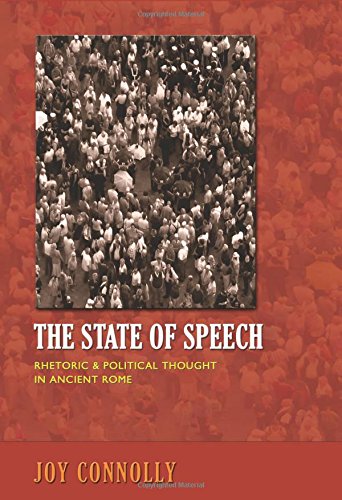

Most ebook files are in PDF format, so you can easily read them using various software such as Foxit Reader or directly on the Google Chrome browser.
Some ebook files are released by publishers in other formats such as .awz, .mobi, .epub, .fb2, etc. You may need to install specific software to read these formats on mobile/PC, such as Calibre.
Please read the tutorial at this link: https://ebookbell.com/faq
We offer FREE conversion to the popular formats you request; however, this may take some time. Therefore, right after payment, please email us, and we will try to provide the service as quickly as possible.
For some exceptional file formats or broken links (if any), please refrain from opening any disputes. Instead, email us first, and we will try to assist within a maximum of 6 hours.
EbookBell Team

4.3
78 reviewsRhetorical theory, the core of Roman education, taught rules of public speaking that are still influential today. But Roman rhetoric has long been regarded as having little important to say about political ideas. The State of Speech presents a forceful challenge to this view. The first book to read Roman rhetorical writing as a mode of political thought, it focuses on Rome's greatest practitioner and theorist of public speech, Cicero. Through new readings of his dialogues and treatises, Joy Connolly shows how Cicero's treatment of the Greek rhetorical tradition's central questions is shaped by his ideal of the republic and the citizen. Rhetoric, Connolly argues, sheds new light on Cicero's deepest political preoccupations: the formation of individual and communal identity, the communicative role of the body, and the "unmanly" aspects of politics, especially civility and compromise.
Transcending traditional lines between rhetorical and political theory, The State of Speech is a major contribution to the current debate over the role of public speech in Roman politics. Instead of a conventional, top-down model of power, it sketches a dynamic model of authority and consent enacted through oratorical performance and examines how oratory modeled an ethics of citizenship for the masses as well as the elite. It explains how imperial Roman rhetoricians reshaped Cicero's ideal republican citizen to meet the new political conditions of autocracy, and defends Ciceronian thought as a resource for contemporary democracy.